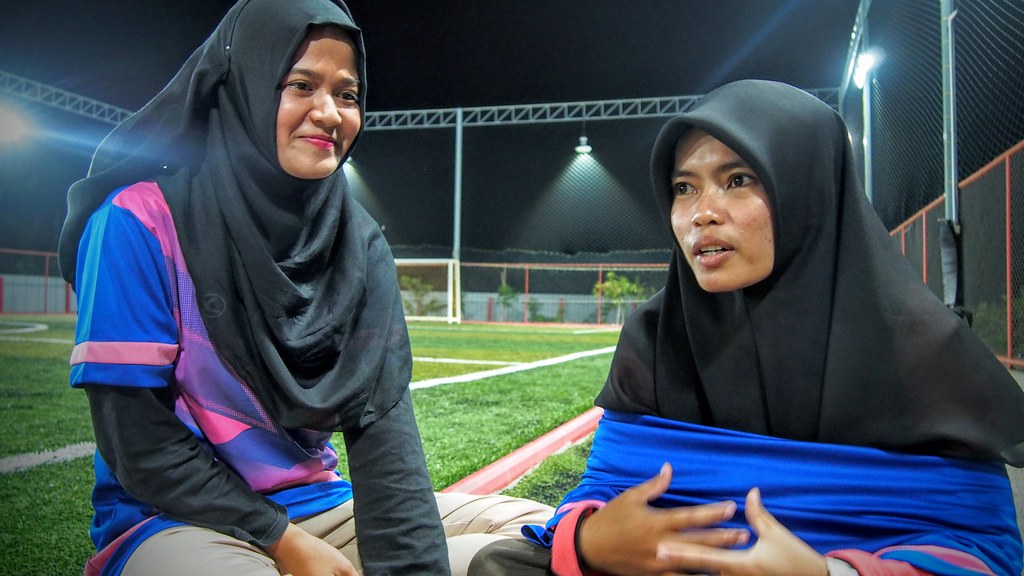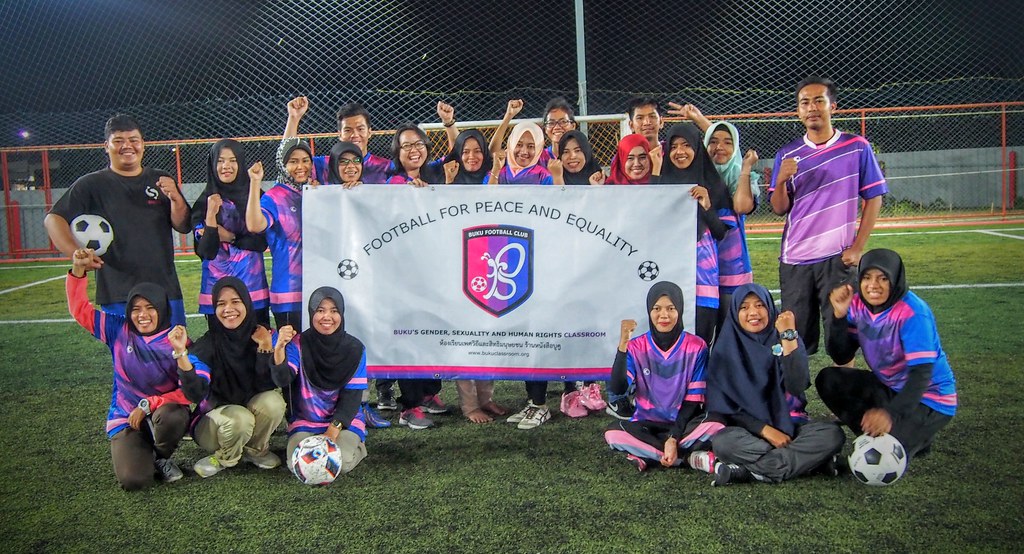
Thai Muslim Football Club tackles LBQ stereotypes
December 11, 2020
Anticha Sangchai set up Buku Football Club for lesbian, bisexual and queer (LBQ) girls and women four years ago to provide a safe place for women struggling to confront discrimination and homophobia in conservative communities in southern Thailand. Its journey towards equal rights highlights the ideals of Human Rights Day which was celebrated yesterday.
Buku is Malay for book. Growing from discussions on gender and sexuality held in a Pattani city bookshop Anticha set up, the Buku FC began with about 20 members, and now has more than 70. It is known as the “Football for Peace and Equality” team for people of various gender identities, educating participants about gender equality. Anticha and other staff offer counselling for families if requested.
Last month, it hosted its first LBQ futsal tournament, a hardcourt game similar to five-a-side football. Among six teams from three southern provinces, many players wore a hijab and were cheered on by family in the stands, which would have been unthinkable when she was growing up, Anticha said.
“Football is very popular in Thailand, yet not many girls play it - especially Muslim girls, who face more hurdles because many consider it a sin,” said Anticha, 43, who was raised Buddhist in the Muslim-majority province.
“Playing football allows them to be free, be themselves, and also helps them face up to the bullying and bias they face. A tournament like this helps us reach the larger community, who otherwise don’t acknowledge or accept us,” she said.

Thailand, a largely conservative Buddhist society, is known for its relaxed attitude towards gender and sexual diversity, with homosexuality decriminalised as early as 1956. However, LGBT+ people face widespread discrimination, particularly outside the country’s capital Bangkok, and are often rejected by their families, human rights activists say.
People like Safiyah Awea, 22, a member of Buku FC for three years. Her father is an imam - a Muslim religious leader - and had opposed her playing football and identifying as lesbian. So Safiyah left home, cut her hair short, and only wears a hijab at work and at religious functions. “I don’t see a conflict between my faith and my lesbian identity or my playing football. And I don’t engage with people who question my belief, as their minds cannot be changed,” she said.
Earlier the year, the Thai cabinet approved a Civil Partnership Bill that would recognise same-sex unions with almost the same legal rights as married couples. LGBT+ Thais are increasingly visible in politics, with last year’s election bringing four LGBT+ first-time lawmakers, as well as the first transgender candidate for prime minister.
26-year-old club member Najmee Taniong is in the midst of the tug of war between religion, sexual identiy and football. “Being Muslim is who I am. Being lesbian and a footballer is also who I am. I don’t think there should be a conflict between these, or that I should be forced to choose between them," she said.
Story from the Thomposon Reuters Foundation